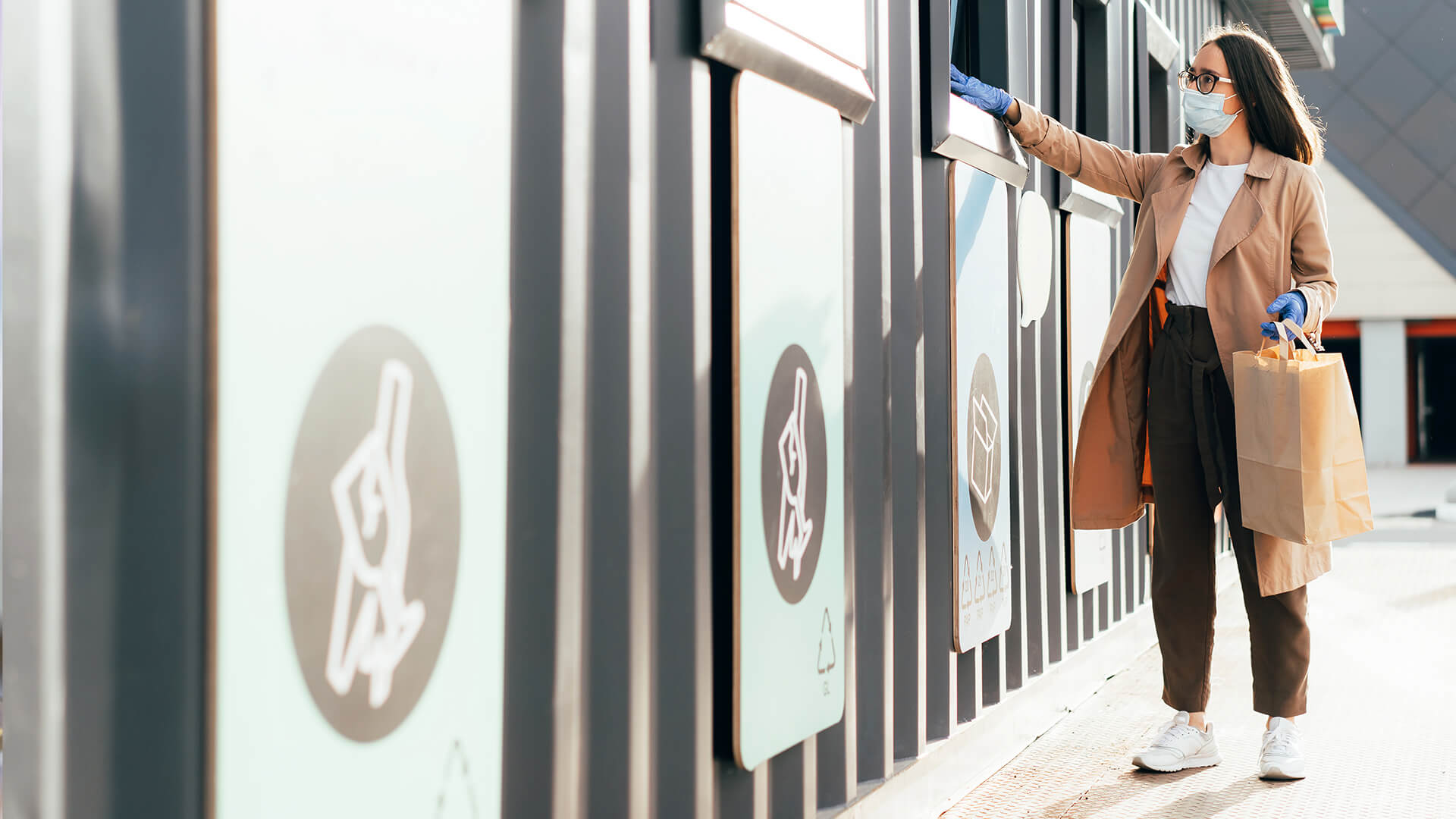Britain’s High Streets and shopping centres are in dire need of waste bins for used PPE which can be disposed of safely.
Shoppers across the UK have diligently been wearing Personal Protective Equipment (PPE) such as gloves and face masks when hitting the shops and public areas, but they end up in general waste bins leading to contamination risks, according to one waste management company.
UK based clinical waste collection company BusinessWaste.co.uk is disappointed with the amount of PPE that is littering the country, especially as these items may be contaminated with Covid-19 germs for up to 72 hours.
Company spokesman Mark Hall says, “PPE can’t just be placed into a normal bin. It falls under the category of hazardous waste, which is why we need separate bins made available to the public.”
Lockdown littering
Save for those making and wearing reusable fabric face masks, the majority of PPE is single-use creating a huge rise in the amount of hazardous waste being dumped in the street.
PPE pollution is increasingly becoming the unfortunate side-effect of the Covid-19 pandemic, with people getting used to seeing rubber gloves and facemasks littering UK streets.
Hall: “Unfortunately, littering is not a new problem in the UK, but since lockdown began there has been a surge in the amount of Covid-related waste on the streets, such as masks, gloves, wipes and hand sanitiser bottles.”
From the significant increase in discarded PPE in Wales, to dozens of disposable gloves being dumped on one street in Hartlepool, it’s clear that something has to be done to stop this new wave of littering causing even more harm to the environment and public health.
This is why BusinessWaste.co.uk are advocating for pop-up PPE bins on UK streets, to reduce the volume of PPE being chucked away, and to make sure it is processed correctly as hazardous waste.
Hazardous waste is defined as waste that poses risk to human health or the environment, and used PPE which could be contaminated with Covid-19 can fall into this classification.
“Regular littering is bad enough, but this is litter which is not only terrible for nature, but could also run the risk of spreading the virus and making you ill,” says spokesman Mark Hall.
“It needs to be dealt with properly, and this means temporarily installing specialist bins specifically for PPE – much like the recycling bins you now see in a lot of town centres”
Following the correct binning procedures, it ensures breaking the link in the chain of infection and helps to stop the spread of the virus.
Safe disposable guidelines
Aside from calling for the installation of PPE bins in public spaces, Business Waste are reminding people to follow Public Health England guidelines regarding the safe disposal of waste, to effectively reduce the risks of spreading the virus through contamination.
These guidelines ask for personal waste such as tissues and PPE to be sealed into smaller separate bags, which need to be quarantined for 72 hours before being placed into the general waste bin.
Hall: “These guidelines are simple enough to follow in the comfort of your own home, but when you are out and about it’s much easier to just chuck your used PPE into any bin. Although this is obviously much better than littering it’s still not following correct procedures.”
But this may be a problem that needs a solution fast, as the University College London’s Plastic Waste Innovation Hub has done the calculations, and found that if every single person in the UK wore a new single-use facemask every day for a whole year, then it would create 66,000 tonnes of contaminated waste.
Company spokesperson Mark Hall says, “if the volumes of contaminated waste get as high as predicted by UCL, we need there to be an airtight system to make sure that it is thrown away correctly.”
“PPE bins are the best chance we’ve got to protect both people and the planet from the effects of this pandemic.”
More advice on how to safely use your refuse services during the COVID 19 pandemic can be found here – https://www.businesswaste.co.uk/safe-waste-collection-guidelines-during-the-covid-19-period/

















